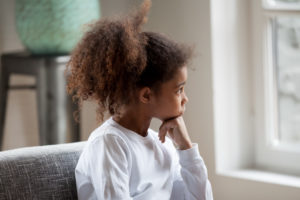How to Address The BIG “What If ‘s…” with Our Kids
There’s always a lot of “What if ‘s?” out there, but in 2020, there’s been three world-wide events which have been raising anxiety in our kids.
The three big “What if ‘s?” that I’ve heard children express worry about since 2020 began are:
- What if there’s a World War Three?
- What if another plane gets taken down by a missile?
- What if someone I know or I get the Coronavirus?
Nowadays, whenever there is a devastating world event, we quickly hear about it through social media or on the news. Often, our kids see it inadvertently on a TV in a restaurant, as the headline news on the newspaper in the grocery store, through Instagram or they may hear about it from other kids at school.
These types of events are serious and concerning, but worrying doesn’t help.
What Can We Say When Our Children Come to Us with Their Big “What If…” Questions?
For example, the first death from the Coronavirus in Canada has occurred in North Vancouver, and this has spiked a lot of concern and anxiety and questions.
When our child is worried we need to…
First, validate our child’s feelings.
Example: “I can see that you’re feeling worried about this virus.”
Second, we need to go over the facts.
Example: “It’s true there is a bad virus happening, but it’s still only affecting a small amount of people in Canada, compared to how many people live in Canada. The people who are most at risk are the elderly and people who already have some difficulties with their immune systems. The health officials are carefully monitoring and are very prepared for it.”
Third, we need to help our child stay in the present (as What If ‘s are about the future).
Example: “We feel very badly for the people who have the Coronavirus, but we need to stay in the present, and realize that we are healthy.”
Fourth, we need to explain that there are things within our control and things that are out of our control.
Example: “This virus is affecting people’s health, but worrying that we might get it, does not help us. We need to focus on good hygiene which means washing our hands before we eat our food. We also need to focus on what is real right now, and right now it is true, that we are healthy and we don’t have it.”
Fifth, we can explain that when similar things have happened in the past, a solution has been found.
Example: “We’ve had other bad viruses in Canada before (Ie. SARS, H1N1) but each time, the medical professionals have got the virus under control and it taught them a lot about how to handle future viruses.”
Sixth, use probability and statistics.
Example: “There are approximately 37.59 million people living in Canada and at the moment, approximately 37,000 people have contracted the Coronavirus, so the chances of getting it are still small if we follow the social distancing and good hygiene measures.”
For some children, going through these six steps will satisfy them and they won’t continue to ask more questions or express more worries, but for other children, they will continue to ask more questions based on worry.
What If My Child Continues to Ask “What If…” Questions?
If your child continues to ask “What If…” questions, it’s important to try to stop this cycle as it feeds the worries.
If your child is familiar with the idea of externalizing their worry voice (Eg. The Worry Imp in my children’s book), then you can explain that you’ve given all the answers you can, and it’s important not to keep thinking about it, because this will feed their Worry Voice.
Try to “switch the channel” to a happier place by doing an activity together, reading a story with them, doing some exercise together etc.
Sadly, it seems as though there will always be devastating events happening, which means that our children need to have the tools to know how to stay in the present, using the evidence which connects to their current reality.
I hope this helps you with discussions about the Coronavirus etc.
Warmly,

PPS. If you would like to order a copy of my children’s book for anxiety management (a CBT resource of 10 strategies for parents, counsellors, and educators to teach children), Surfing the Worry Imp’s Wave, (Ages 5-10yrs.) please click on the image of the book in the right side-bar. It is also available for purchase at the ABLE Clinic in West Vancouver (585 16th St.), Surrey and Richmond.
To receive my free ebook: 8 Common Mistakes to Avoid When Your Child Is Anxious click here.
For a related article and link to my TEDx talk, to help with your child’s worries, you may wish to read:
Want to Connect?
Subscribe now to receive free weekly parenting tips and inspiration.







